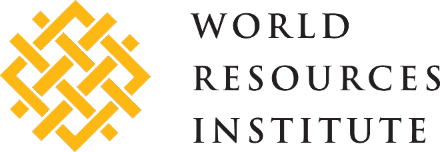Working Group for Indigenous Peoples and Frontline Defenders
Bolstering the capacity of frontline defenders, including Indigenous People and local communities, is a strategic priority for the Nature Crime Alliance. The Alliance Secretariat firmly believes that the process for meeting this aim must be shaped by the communities themselves, who have the best understanding of the issues on the ground.
To further this objective, the Alliance Secretariat, in partnership with Indigenous Peoples’ Rights International (IPRI), has formed the Working Group for Indigenous Peoples and Frontline Defenders (WGIPFD).
The WGIPFD was formed through a series of convenings, culminating in an April 2024 event held alongside the 23rd UN Permanent Forum on Indigenous Issues in New York. At this gathering, over 30 Indigenous representatives discussed challenges related to nature crime, including access to legal resources and improving information exchange between communities. The need for dialogue between Indigenous Peoples, frontline defenders, law enforcement, and government structures was also highlighted.
“The Working Group of Indigenous Peoples and Frontline Defenders of the Nature Crime Alliance is more than just a platform — it has the potential to be a powerful stage for amplifying the advocacy of Indigenous peoples and frontline defenders. It is a space where we can actively share our values and traditional systems that foster harmony with nature. By working together, we can achieve environmental sustainability and economic, and social benefits for nature- dependent communities.
We remain committed to advancing respect for our rights as Indigenous peoples and highlighting our crucial role as partners in protecting the environment from further degradation.”
Joan Carling, Executive Director, Indigenous Peoples’ Rights International
The WG brings together representatives from Indigenous communities across Asia, Africa, North America, Latin America and the Arctic.
Aims of the working group
The aims of the working group include, but are not limited to:
Generate increased understanding: Elicit and explore the unique perspectives, challenges, needs, roles, and contributions of Indigenous Peoples and frontline defenders in combatting nature crimes.
Facilitate collaboration and networking: Build partnerships and pool resources to amplify collective efforts in the fight against nature crimes. This includes creating opportunities for dialogue and collaboration between Indigenous Peoples, frontline defenders, law enforcement agencies, and other government structures.
Empower and equip frontline defenders: Develop and deliver knowledge transfer, skill-building opportunities, tools, technologies, and resources tailored to support Indigenous communities and frontline defenders.
Research and document impacts: Compile and analyse information about the impacts of nature crimes on Indigenous Peoples and environments.
Media and communication campaigns: Leverage various channels to highlight advocacies, challenges, showcase successful initiatives, and garner public support.
Contacts
Nature Crime Alliance: Tsveti Bandakova, Programme Manager: tsvetilena.bandakova@wri.org
IPRI: Jo Ann Guillao, Coordinator, WG for Indigenous Peoples and Frontline Defenders: dyo-ann@iprights.org

